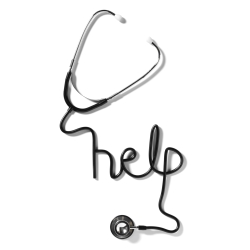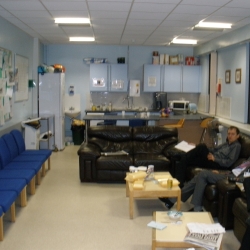 Doctors should be experts in illness but as a group we are notoriously bad at looking after our own health, says JuniorDr’s Rosie Puplett. We often feel pressured into working even when we are unwell, either by other staff members or (more often) by ourselves.
Doctors should be experts in illness but as a group we are notoriously bad at looking after our own health, says JuniorDr’s Rosie Puplett. We often feel pressured into working even when we are unwell, either by other staff members or (more often) by ourselves.
This is becoming a bigger issue as the EWTD stretches medical teams to breaking point, and rates of sick leave are increasing amongst junior doctors – as recent research by the Royal College of Physicians has shown.
There are many reasons why doctors become ill, from a physical illness to work-related stress. If you feel that you are unwell it is important that you act promptly. This helps your employer and colleagues, but most importantly it helps you to take control of the situation and get back on your feet as quickly as possible.
Putting your health first
The first – and often most difficult – step is to identify when you are unwell enough to warrant action. Key things that should make you think carefully about your health are increasing levels of tiredness, deteriorating ability to cope with work or life outside work, and concern from others about your wellbeing.
The first port of call should usually be your GP. As they are a doctor themselves they can often empathise with your position. Your occupational health department will be able to help too, as they are experts in the complex interactions between health and work and can be a good source of practical advice. The sooner you involve GPs or occupational health, the easier it will be to get on top of things. You could also speak to your clinical or educational supervisor at this stage if you feel able to.
If you need time off …
• Don’t be too hard on yourself! An unwell doctor is the same as an unwell person and you may well need some time away from work get back on your feet.
• Speak to someone from your deanery – they can help you come up with an action plan with regards to your training. If approached early they can often be flexible. They can also help tailor your return to work to best suit you and can help you to consider your long term career goals.
• Try not to feel responsible for leaving your colleagues to cope without you. Filling gaps in the rota is the duty of your trust, not you. Hopefully once you are better you will be able to return to work refreshed, and will be far more use to your team than when you were ill!
• Telling your colleagues that you are signed off work can be difficult, but they can be a great source of support. As long as your supervisors know what is going on you don’t need to tell anyone else yourself if you don’t want to.
Practical and financial support
You may well need extra support, financially and practically, while you are off sick. There are a few things you can do to help yourself:
• Ensure you are paid correctly – you are entitled to paid sick leave and statutory sick pay once that runs out (currently £79.15 a week). Talk to your pay roll department.
• Speak to your bank manager early on – you may be able to take a repayment holiday from your loan or extend your overdraft until you are back on your feet. Also speak to the council or your energy provider if you are envisaging having difficulty paying bills.
• Draw up a budget. Look for areas where you can cut costs and reduce unnecessary outgoings. Don’t neglect yourself however – it is important that you stay warm, well fed and in touch with the outside world! Tools such as budget worksheets can be a great help.
• Look into benefits – if you are receiving SSP you may well be eligible for housing and council tax benefit. The process can be lengthy and you need a lot of documentary evidence so start early. Benefits are there to help people who are unable to work – don’t feel ashamed about claiming them.
• There are several organisations which can help doctors in financial difficulty – the BMA offers support to its members, and the Royal Medical Benevolent Fund, the Royal Medical Foundation and BMA Charities can all provide a range of financial assistance and advice
• Talk to your friends and family – even if they can’t help you financially they can be a great source of support
Overall the best thing you can do if you think you are unwell is to be honest with yourself about your situation, and speak to someone early on. Remember, doctors are not immune from becoming ill, and your health is important!
Useful resources
The British Medical Association
www.bma.org.uk
Doctors For Doctors (BMA Counseling and Doctor Advisor Service)
www.bma.org.uk/doctorsfordoctors
Royal Medical Benevolent Fund
www.rmbf.org and www.support4doctors.org
Royal Medical Foundation
www.royalmedicalfoundation.org
Doctors Support Network
www.dsn.org.uk
The Sick Doctors Trust
www.sick-doctors-trust.co.uk
International Stress Management Organisation UK
www.isma.org.uk
The Citizens Advice Bureau (CAB)
www.citizensadvice.org.uk and www.adviceguide.org.uk
DirectGov (information on claiming statutory sick pay and benefits)
www.direct.gov.uk



